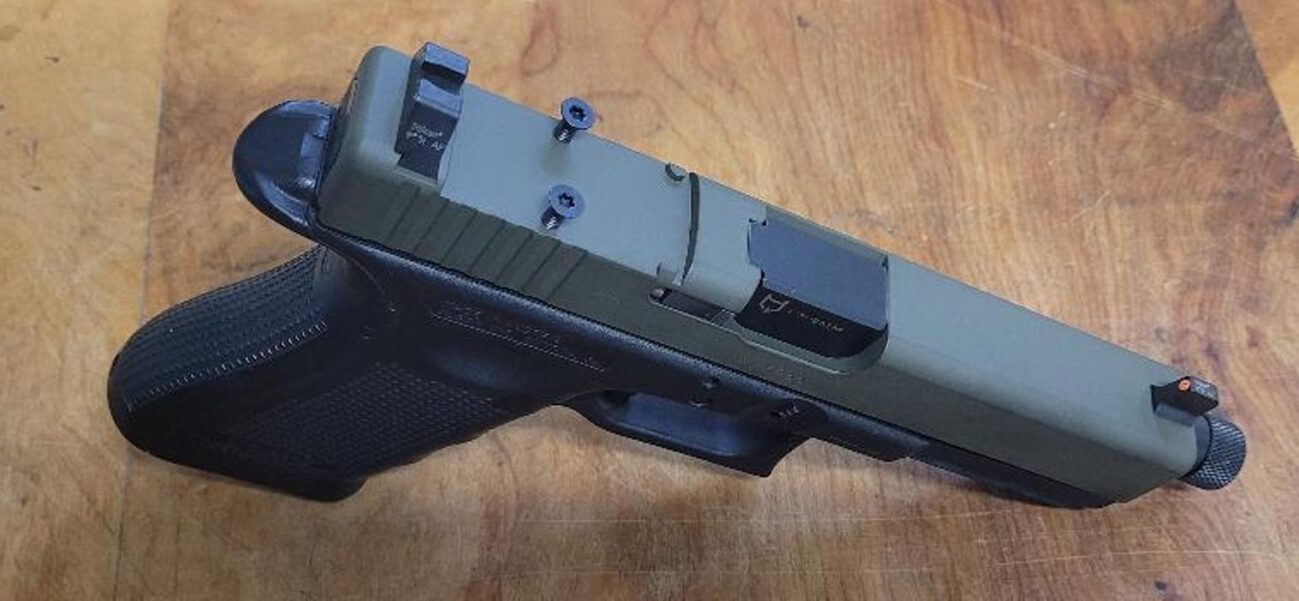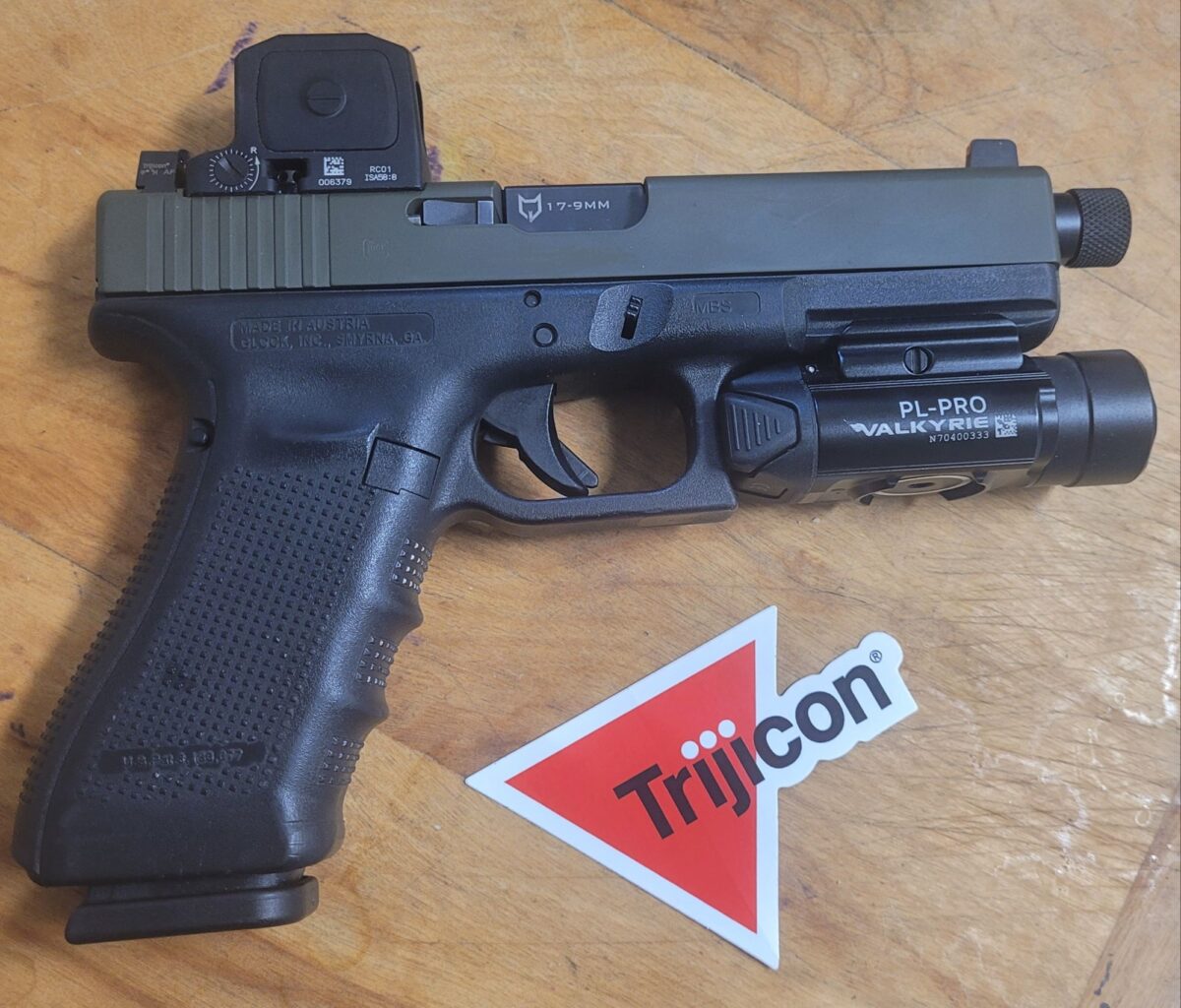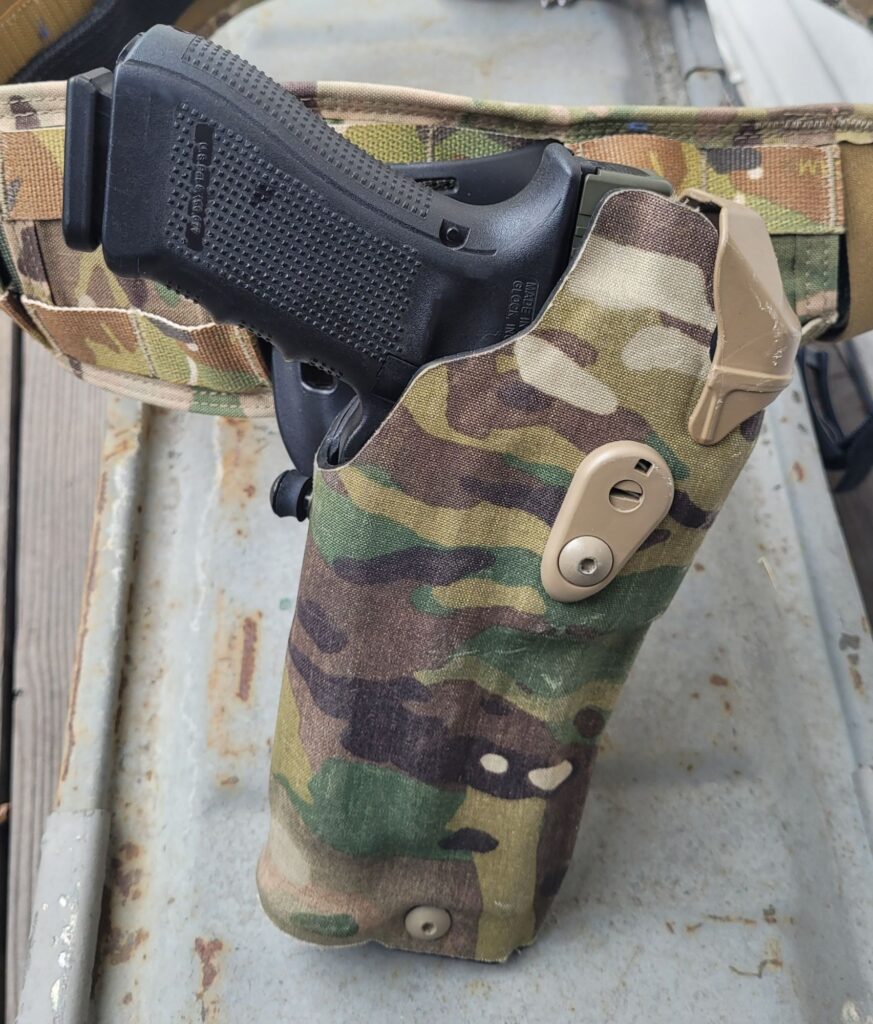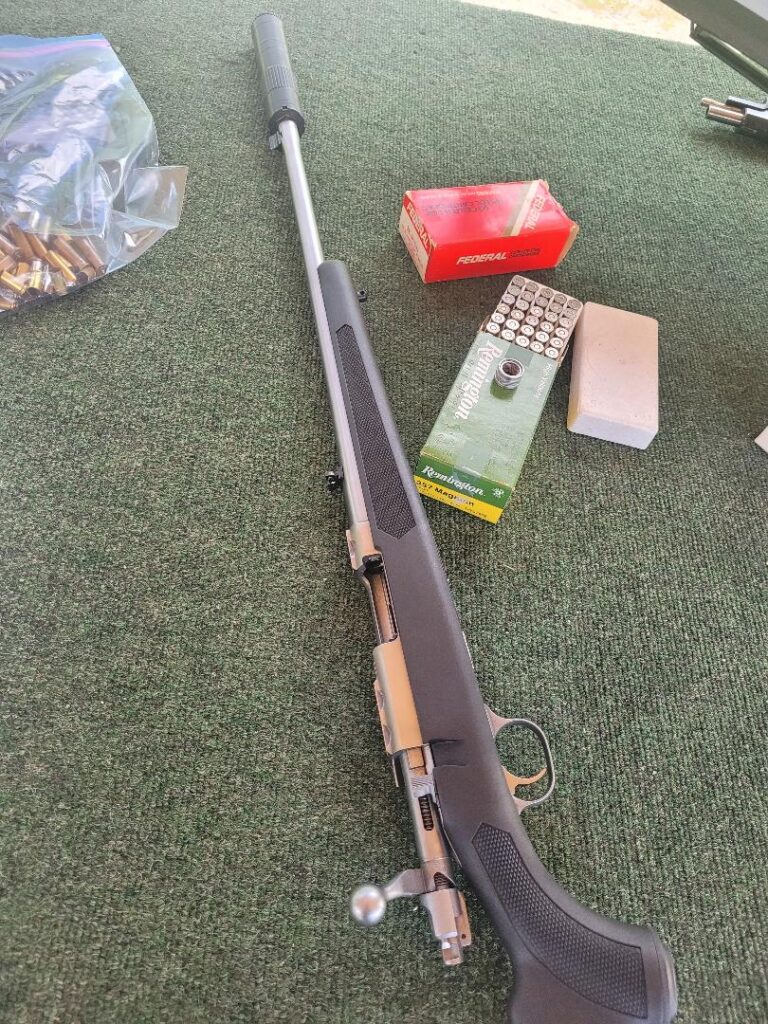I must say, for a fella whose blog is, nominally, not a ‘preparedness’ blog, once in a while Joel hits it outta the park with this simple-but-profound line:
“…I have a strict policy of never leaving my porch unless I’m ready to go to war.“
Now, for context, Joel lives in the lonely desert and in this case he was talking about the risks posed to him and his dog by bold coyotes. But…there’s some good sense in that statement, especially if your anticipated threat is more than just a bunch of tweaker-lookin’ dogs. (Or, as someone once opined, “coyotes look like German Shepherds on heroin”.)
I commented that my similar policy is that I don’t leave my house without the gear necessary to either fight my way back to it, or to abandon it. And, broadly, thats true. When I leave for work every morning I have my Bag O’ Tricks which covers a pretty wide range of possibilities. I also have a good bit of gear (including a thundertoy or three) stashed in my truck. And, finally, I’ve a carbine and plate carrier discreetly tucked away next to my desk at work. Power failure, road closures, civil unrest, earthquake, whatever….if I’m away from my house, odds are I’ve got the gear handy to enable me to either get back to my house or to survive away from it.
I’m pretty sure that by just about anyone’s standards that might appear a bit extreme, but thats the lifestyle I’ve chosen and it makes me….calmer. The odds of me ever having to Omega Man my way from my workplace to my houseplace are virtually none, and I know that…but thats still a more-than-zero chance. On the other hand, it is orders of magnitude more likely that I will be caught away from my house when here’s a power outage or some other event that precludes the normal ease-of-travel.
Give you an example…back in ’97 a bunch of tanker cars derailed at the town of Alberton, about 30 miles down the road, and the folks there had about the same experience as Chernobyl evacuees. It’s not impossible that a hazardous chemical spill of some type, accidental or purposeful, will shut off my ability to return to my house. Thus, I need to be able to function with whatever resources I have with me or that I can count on at other locations.
And it could be something other than a chemical spill. Police activity, civil unrest, a plane crash, earthquake, gas leak, bridge collapse, etc….all are reasonably possible events that would inhibit my ability to return.
When I leave my house, it’s not necessarily ‘prepared for war’ but it is prepared to not return for a few days at least. In a time of crisis, my house is, for now, the safest place for me to be. It may not always be that way, but for now thats the way it is. It’s the boat that keeps me afloat in the sea of uncertainty. Why would I want to take my chances away from it if I didnt have to..Never get out of the boat.
You do you, of course. What works for me (or that I think works for me) may not be something that you think works for you. But I feel that being prepared every time I leave the house to not come back gives me options. I like having options.
 To this:
To this:
 By the by, if anyone is as big a gear queer as me and is curious, its a Viking Tactics Skirmish Belt with Cobra Belt. IFAK/TQ pouch is by Warrior Poet Supply. And the dual mag pouches are High Speed Gear Double Decker Tacos. Thats it…I didn’t want to clutter things up. This isn’t an end-of-the-world type of setup. I just wanted something for investigating the odd bump in the night or “‘who’s truck is that in the driveway?’ at 130am” sort of rig. Pistol, FAK, and 2 spare AR/Glock mags. Just need to add a flashlight pouch and I’d call it good.
By the by, if anyone is as big a gear queer as me and is curious, its a Viking Tactics Skirmish Belt with Cobra Belt. IFAK/TQ pouch is by Warrior Poet Supply. And the dual mag pouches are High Speed Gear Double Decker Tacos. Thats it…I didn’t want to clutter things up. This isn’t an end-of-the-world type of setup. I just wanted something for investigating the odd bump in the night or “‘who’s truck is that in the driveway?’ at 130am” sort of rig. Pistol, FAK, and 2 spare AR/Glock mags. Just need to add a flashlight pouch and I’d call it good.


